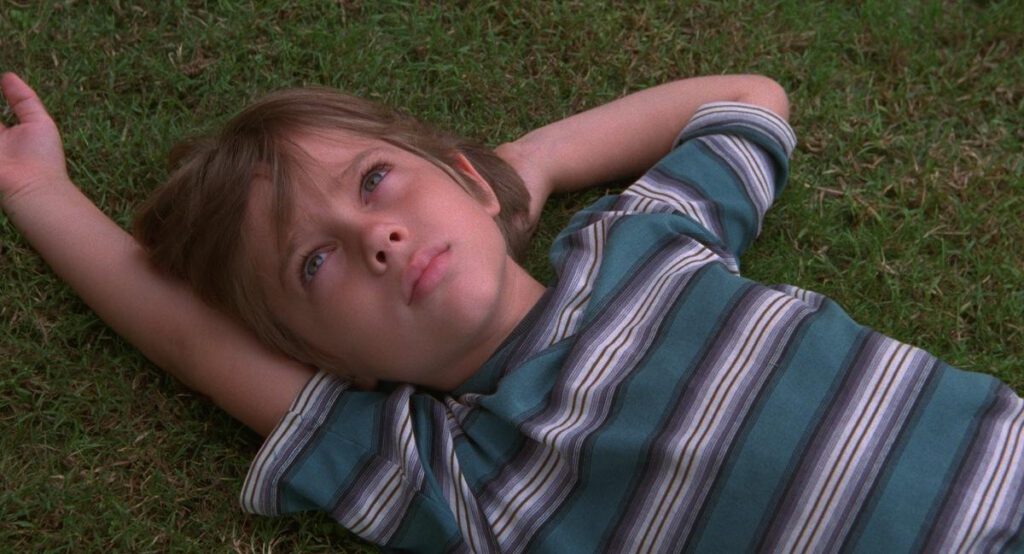“R&B should be abolished,” Marjane Satrapi joked with a wild grin. She goes on: “Iron Maiden is good when you’re an adolescent. But they’re really f—-g vulgar.”
The Iranian filmmaker never stutters, not when she talks about getting off on the gore in her black comedy “The Voices,” and not when discussing her taste in music. Satrapi directed “The Voices,” a film about a schizophrenic (Ryan Reynolds) who lives and kills in an imaginary Everytown called Milton, because she was sick of the scripts she was sent after she adapted her autobiographical comic book “Persepolis” for the screen. The stories she got offered were too stereotypically girly, and Satrapi, an artist who takes issue with being labeled as a “feminist,” refuses to be dismissed that way. “I don’t care if you have a vagina, or four penises,” she says gesturing to her crotch. “I just like really good story-telling.”

I’m not wild about “The Voices.” It’s a sour tonal goulash with thin characterizations and a meandering plot. But talking to Satrapi, I realized why I couldn’t emotionally check out of the movie. While she emphasizes that filmmaking as a collaborative process, “The Voices” would not have been made were it not a Marjane Satrapi film. Satrapi’s ghoulish zeal for mixing comedy with horror is a fascinating extension of her personality. Her earnest need to defy expectations and push buttons is admirable.

“The Voices” is essentially a horror-comedy in which viewers identify with a mostly likable serial killer. Satrapi’s empathy and understanding of her troubled character made me see a thematic clothesline that united the best films I saw yesterday. In “Love is Strange,” a bittersweet romance directed and co-written by Brooklyn director Ira Sachs (“Keep the Lights On,” “Forty Shades of Blue“), Ben and George (John Lithgow and Alfried Molina) try weather through an uneasy transitional period.

After they marry, George loses his job, forcing him and Ben to live with two sets of friends. The awkwardness that both men consequently face as they adjust to living apart from each other makes “Love is Strange” a charming comedy of manners. But, since the film is essentially about how people show their love for each other in a community of friends, “Love is Strange” is more often a serene drama about accepting people in spite of their most glaring limitations. It’s a considerably lighter film than Sachs’s earlier tragedies, but just as nuanced, and warm.

Austin filmmaker Richard Linklater’s long-gestating “Boyhood” similarly charts the emotional maturation of Mason (Ellar Coltrane) and his loved ones through a series of bubble-bursting incidents. Shot in four-day sections over the course of twelve years, it’s an epic coming- of-age tale in which Mason learns to accept his own powerlessness. A child of divorce, the boy becomes comfortable in his own skin after realizing that even the most assured, emotionally-balanced people in his life, including his biological father (Ethan Hawke), can’t always be there for him. Mason grows a little with every discouraging discussion with a mentor, every fake sick day, and every father-son talk.
The most surprising thing about “Boyhood” is how casual many of Mason’s major life events feel. The scope of Linklater’s project never feels gimmicky because the story focuses on a series of intimate revelations. Even when characters are at their most volatile—as in a pre-college break-up and conflicts with a drunk, abusive step-father—there’s always a frankness and a natural rhythm to Linklater’s scenario. All the actors impress, but the standout might be the director’s Lorelei Linklater, who practically wrenches the spotlight away from Coltrane’s Mason. Like “Love is Strange,” “Boyhood” is a sweet, meandering drama about how our environment shapes us, but only to a point.

And finally, my favorite film of the festival so far: “Calvary,” a melancholic neo-noir about spiritual collapse. Unlike “The Guard,” writer/director John Michael McDonagh’s previous film, is more directly concerned with doubt. In fact McDonagh immediately establishes where Father James (Brendan Gleeson) is headed by film’s end: during confession, an unidentified parishioner promises to kill the priest in a week’s time. From then on, James spends his time in conversation with his congregation: unfulfilled locals, people that only talk to James about their transgressions, and fears. Each new discussion leads James to realize that he can only do so much to help the people of his community. His slow, bitterly funny decline is engrossing thanks to Gleeson’s typically commanding performance. But McDonagh’s assured direction and original script are even more impressive.
While they share the same preoccupations, the pace of “Calvary” is not—as it was in “The Guard”—set by brother/playwright Martin McDonagh’s style of hilariously obfuscating, foul-mouthed banter. This new movie is more contemplative, but its sense of humor is more bruising, though no less brash.












